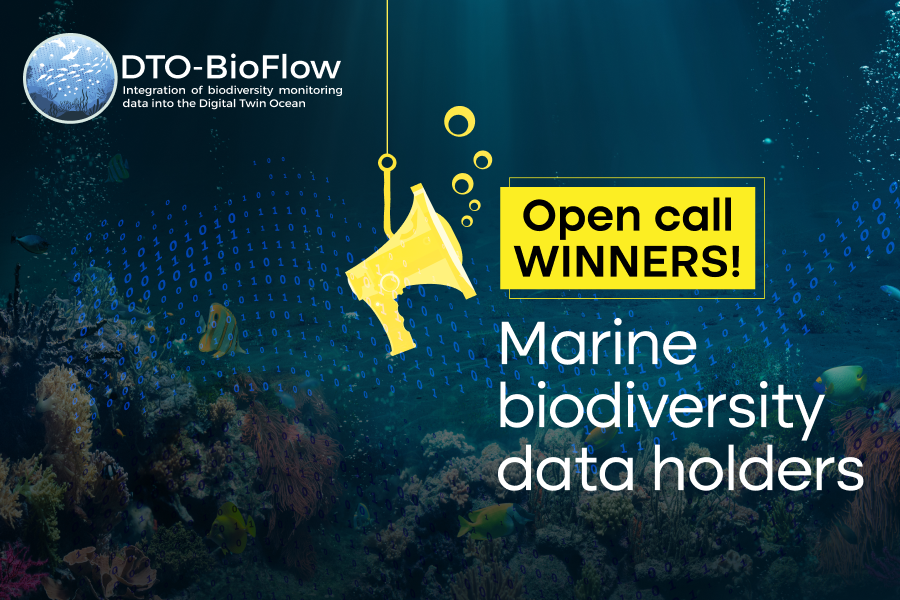Nine projects have been selected as beneficiaries of the DTO-BioFlow project FSTP grants. The selection process aimed to identify data holders capable of facilitating sustained and long-term ingestion of previously inaccessible biodiversity data for uptake by the EDITO infrastructure serving the EU Digital Twins of the Ocean programme through EMODnet, the European Marine Observation and Data Network, aligning with the project's commitment to the Horizon Europe Mission to restore our oceans and waters by 2030.
With over 20 applications received by the January 17th deadline, the project witnessed remarkable interest from diverse regions including the UK, Netherlands, Sweden, Portugal, Norway, Italy, and Israel.
“From the project coordination we are glad about the good reception of this call and the interest shown by applicants collecting data on a wide variety of biodiversity observations. DTO-BioFlow will facilitate the resources to bring these data into the EU Digital Twin Ocean initiative via EMODnet, helping to strengthen the accessibility of key marine biodiversity data and its future application in tools to advance research and policy applications. After the high quality of the applications received, we look forward to support more applications with the second FSTP call that will take place early next year” highlighted the team at the Flanders Marine Institute (VLIZ).
A broad spectrum of data sources
The selected projects represent a diverse range of topics and institutions, ensuring a multifaceted approach to data collection. With a wide array of methods such as citizen science observations, AI-assisted imaging, net trawls and benthic grabs, focusing on a variety of organisms, such as cetaceans, plankton and benthos, being collected from different regions, ranging from the Arctic Ocean to the Mediterranean Ocean to the Azores, the chosen projects guarantee a broad spectrum of data sources. This diversity reinforces the project's goal of sourcing data from different avenues, promising a comprehensive dataset that will significantly contribute to a wider understanding of marine biodiversity.
The next step for the selected projects is to participate in a data training workshop scheduled for April 2024, in Ostend, hosted by DTO-BioFlow coordinator VLIZ. The training will guide data providers on how to reformat and quality control data to conform to international standards and to make these available to EMODnet Biology and the EU Digital Twin Ocean.
Meet the Successful Applicants
